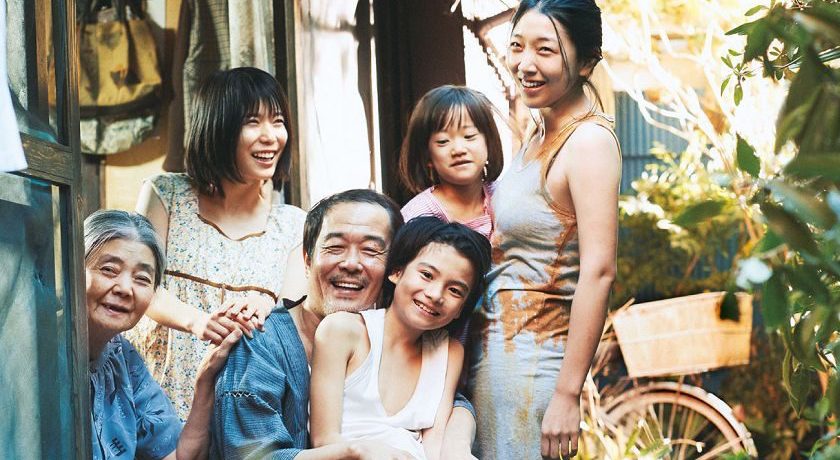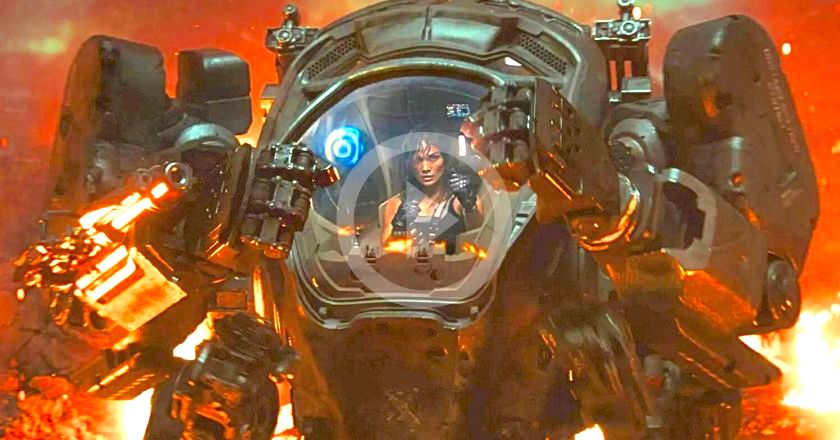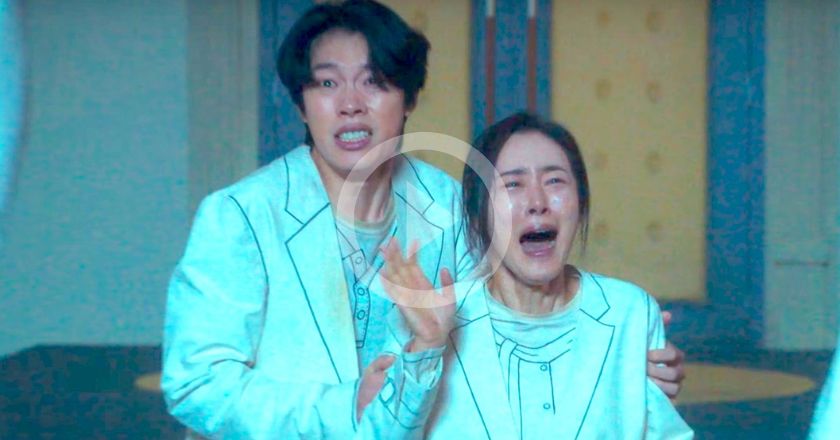
Director and writer Hirokazu Kore-eda’s focus on families in different situations is a recurring theme. From the child mix-up drama of Like Father, Like Son, to the deadbeat father at the centre of After the Storm, Kore-eda crafts highly detailed portraits of his characters. His latest film Shoplifters is no different, the filmmaker this time turning his focus to a lower class Japanese family.
The film starts off with a relatively normal scene. We see a father, Osamu Shibata (Lily Franky), taking his son, Shota (Jyo Kairi), shopping. The scene quickly takes a turn as we realise the pair is in fact at the supermarket to steal goods. Despite working on a construction site, Osamu supports his family by takings the things they need as well as expensive goods he can sell to others. On their way home, the pair encounter a lonesome 5-year-old girl. Fearing she’ll freeze during the cold night, they decide to take her in.
The characters that make up the family of misfits consist of Hatsue (Kirin Kiki in one of her final roles), the grandmother who illegally claims the pension of her dead ex-husband; Nobuyo (Sakura Andô), Osamu’s wife, who is employed at a laundry and finds her hours being reduced; Aki (Mayu Matsuoka), the eldest daughter who performs in a strip booth; and the newest member of the Shibata clan, young Yuri (Miyu Sasaki), who hails from a family of abuse and neglect. All are flawed in their own way, but their actions and the motivations behind them are understandable””the need to survive, a place to belong, and to feel loved.
The entire cast delivers naturalistic performances; one can’t help but notice how differently each family member carries themselves throughout their daily routine. Kiki is a standout, portraying the elderly Hatsue with a warmth and generosity stemming from a long hard life. Franky’s Osamu is no less captivating, his love for Shota showing through, but carrying a face that hides a deep longing yet to be fulfilled.
The pacing may seem slow, but getting to know each character intimately is a luxury we’re deprived of in too many films. In a society that prides itself on social etiquette and conformity, it’s almost paradoxical that these six people are able to live happy lives despite being on the fringes.
Even during emotional, trying developments, the characters find a way to laugh. Nobuyo and Shota burp after drinking sodas in a scene of relative normality not long after experiencing a harsh turn. But all is not as it seems, with small clues hinting at the reality that catches up to everyone in the film’s later stages. Gone is the leisurely pace, replaced with a sense of immediacy as certain events change up the family dynamic, and in turn, how we view them.
The film’s inherent realism is striking. There are no fancy camera shots and the cinematography isn’t filled with saturated colours or dramatic lighting. Kore-eda and D.O.P. Ryûto Kondô hold naturalism as key, providing an intimacy that pulls the audience in.
Kore-eda once again crafts an engaging story where the theme of family””what constitutes one and whether we really get to choose our own””is at the forefront. A master of emotions, he expertly draws viewers in to feel one thing, only to push them in another direction moments later. Bittersweet at times, but never melodramatic, Shoplifters is another wonderful addition to the Japanese director’s oeuvre.








